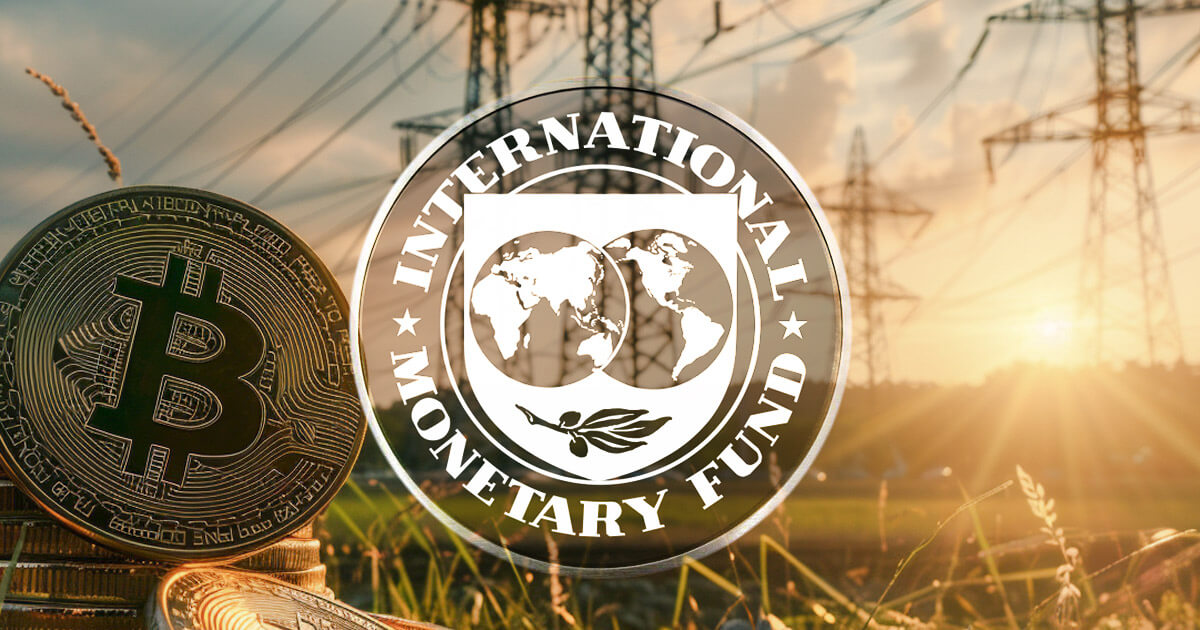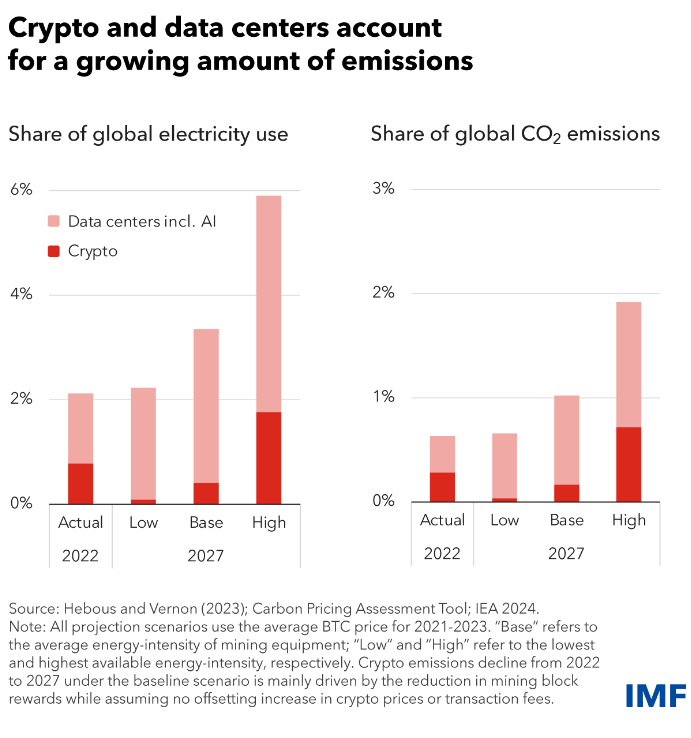IMF Proposes 85% Power Rate Increase for Crypto and AI Data Centers

The International Monetary Fund (IMF) proposed raising energy taxes to reduce emissions from cryptocurrency miners and artificial intelligence (AI) data centers, according to an August 15 report.
Daniel Batten, managing partner at CH4Capital, has issued a strong rebuttal to the report on his X (formerly Twitter) account.
“Bitcoin mining has significant environmental benefits, and those who stand to lose most from mainstream adoption of Bitcoin (IMF, central banks) should resort to direct attack methods.”
The IMF claims that the sector consumes 2% of the world’s electricity and contributes about 1% of global emissions. Financial regulators have claimed that a single Bitcoin transaction uses as much electricity as the average person in Ghana or Pakistan can use for three years.
Additionally, due to the energy-intensive nature of AI data centers, they claim that ChatGPT queries consume 10x more power than Google searches.

The IMF projects that energy consumption in these sectors will increase by 3.5% within three years, a level comparable to Japan’s current electricity consumption, the world’s fifth largest.
Raise energy taxes
To address this, the IMF recommends a significant increase in energy taxes. The IMF suggests that the government raise electricity prices for cryptocurrency miners by 85%, to $0.047 per kilowatt-hour, or $0.089 including air pollution costs. This measure could generate $5.2 billion a year and reduce emissions by 100 million tonnes, roughly the same as Belgium’s current emissions.
Likewise, the IMF recommends imposing a tax of $0.032 per kilowatt-hour on data centers, rising to $0.052 when air pollution costs are included, which could raise $18 billion a year for the government. They claim that their data centers use less energy and often operate in areas where: Greener electricity and Therefore, they will pay lower taxes than cryptocurrency miners.
But the IMF stresses that implementing such taxes would require international cooperation to prevent miners and data centers from moving to areas with cheaper energy prices.
The IMF also suggests targeted measures to promote energy-efficient practices among cryptocurrency miners and data centers. This could include incentives for more efficient equipment, adoption of less energy-intensive mining methods, and supplementing taxes with credits for zero-emission power contracts or renewable energy certificates.
The report was authored by Shafiq Hebbus, deputy director of the IMF’s Finance Department, and Nate Vernonlin, an economist in the Climate Policy Department.



